Trending
Opinion: How will Project 2025 impact game developers?
The Heritage Foundation's manifesto for the possible next administration could do great harm to many, including large portions of the game development community.
In this article i interview Alex Mosolov, an indie developer and lead of Fractal Softworks, lead dev of one of the most well-designed and properly-managed indie games that you most likely don't know about, Starsector.

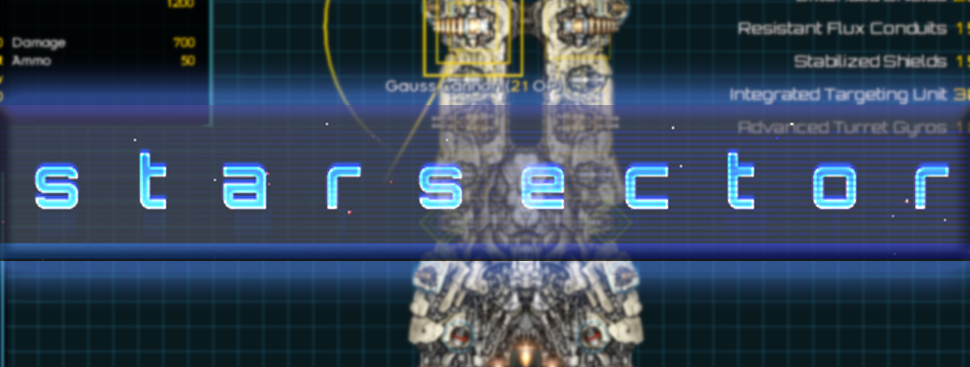
With games launching every day, both triple-A full releases and early access concepts, with Kickstarters to keep track of and various news flooding RSS feeds, it takes a lot for a game nowadays to lodge itself into our minds for more than a few months. For me, that game is Starsector, an indie-developed role-playing, arcade-tactical, star-faring, 2D spaceship game. It can be called "Mount & Blade in space", a game in the same vein as Escape Velocity, Star Control or SPAZ, or widening the net, Freelancer in 2D sprite glory if the other references fell short.
It's one of the very few that manages to keep my attention all through-out the foggy landscape of the game industry, but not just because it's a great game but because it manages to sustain its own development and maintain a consistent and involved community without any of the crutches that the current indie gaming sphere has begun to take for granted. This game was not Kickstarted or Indiegogo'd, it didn't have a huge marketing push or saturate the media with emails and with a small team of devs they managed to put out each major release as a completely playable and 'feeling-complete' game.
Did i mention it's not even on Steam? Or any other digital distribution service for that matter?
But that's enough of my yapping... i managed to catch Alex Mosolov, the lead developer and head of Fractal Softworks, the maker of Starsector, for a not-so-short interview on his thoughts about working as an indie developer and its inherent hardships and choices as well as rewards and experiences. Without further ado:
- Hello, can you give us a short summary of yourself?
Oh, I'm terrible at this! My name is Alex Mosolov and I'm the lead developer/designer of Starsector. In my recent spare time (such as it is), I've been torturing myself by playing Starcraft 2. After this phase passes, I'll probably start playing something less aggravating. Good as it is, SC2 is *not* the game you want to play if you're mostly playing games to relax when you're tired.
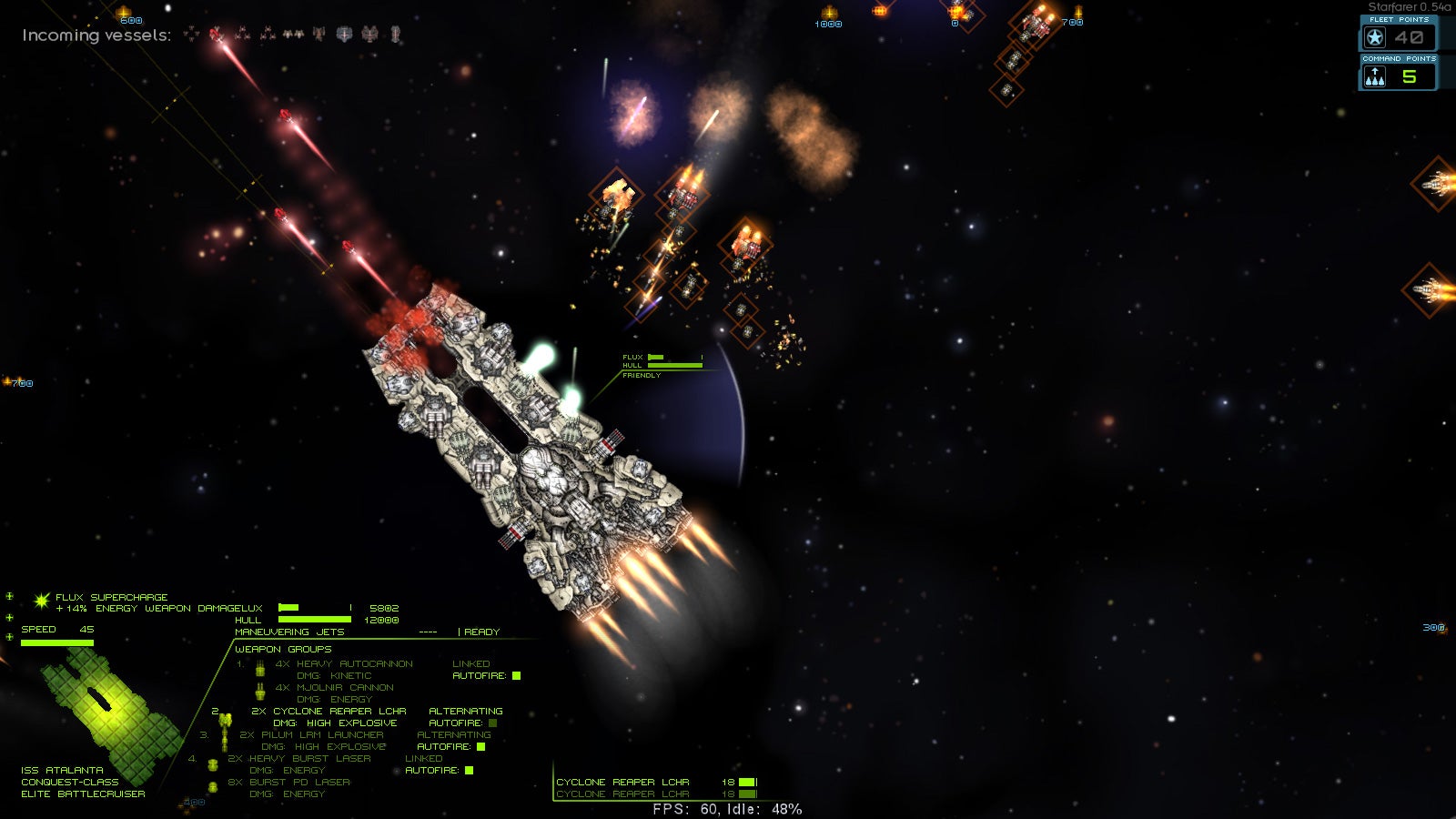
- Can you tell us a bit about Starsector? What's the game about, how long have you worked on it and how many people are involved?
So, Starsector: build up your fleet, upgrade your ships, improve your character, and influence the goings-on in a fledgling sector abruptly cut off from the rest of the Domain 200 cycles ago. Sort of a mix of Star Control, Mech Warrior, and Master of Orion 2.
As for how long, let's see - the earliest revision from SVN dates to late in 2009, so looks like it's been about four and a half years now. That's a bit misleading since the first year and a half or so have been strictly part-time, though.
Right now, there are three people working on Starsector: myself, David Baumgart, and Stian Stark. David is an artist, and has also recently taken over writing duties - creating the game's backstory, designing the geographical and political layout of the Sector, etc. Stian is a composer and a sound designer; the music and sound effects you hear in the game are his creations. A couple of other folks have been involved along the way.
- The game is technically in alpha and at this moment it is selling as a preorder with early access for 10 USD. Considering you haven't had the game crowdfunded, are you developing the game mostly out of your own pocket out of passion or is it managing to cover its own development costs as it goes along?
It's a bit of both - the income from preorders is doing a good job of keeping the drain on my savings manageable. There was a big spike after TotalBiscuit covered the game, and another one more recently when Scott Manley did. I owe a lot to both of them for raising the game's visibility and helping make long-term, full-time development possible.
- What were the difficulties of pricing and marketing the game considering that Kickstarter wasn't a big thing then? Did you try and get in touch with a publisher for your game?
At the time, Minecraft was already doing exceptionally well with preorders, so it was clear that it could work as a model. Mount & Blade had used a similar approach, too. As far as pricing, it was really as simple as asking myself what I'd consider a fair price if I was on the purchasing end of it, and going with that. I'd love to tell you I did lots of market research and number crunching to arrive at the right numbers, but that just wasn't the case.
I hadn't tried to get in touch with a publisher, though I did end up talking to a couple after the alpha was out for a while and the game had gotten some visibility. In the end, I think that's just not for me - if at all possible, I want to have full control over what I'm doing. If someone else is writing your checks, you don't have that.
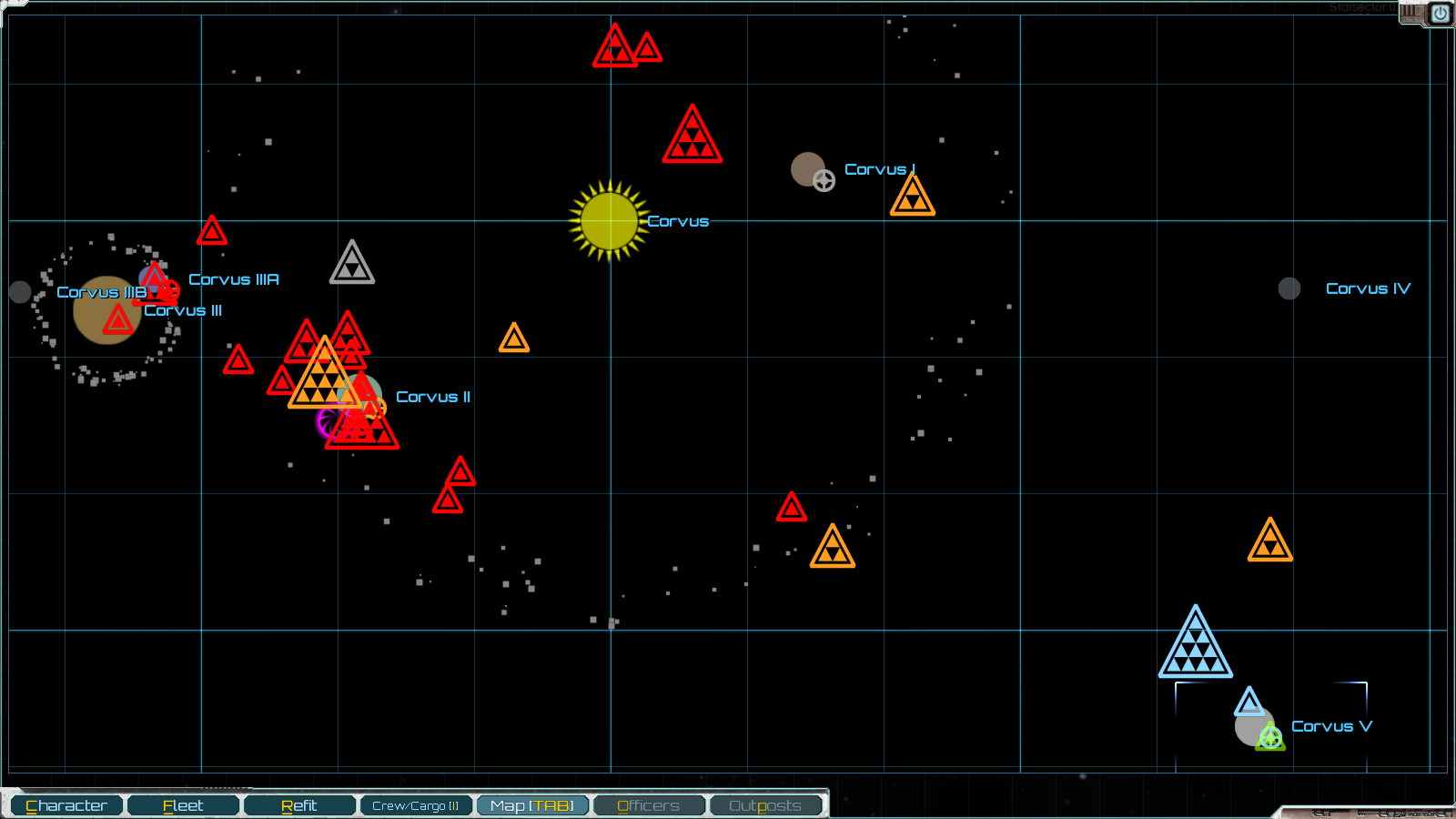
- Would a large chunk of money gotten off a successful crowdfunding even would have really helped development in the initial phase if it was possible? Would it have made it easier/faster to develop Starsector or just harder to focus on development due to a potential strain of crowdfunding 'duties'?
Past a certain point, throwing more money at development doesn't make it go faster. The only way to do that is to bring in more people, and that's not easy. First off, you have to find good people that share your vision. Assuming you pass that hurdle (and realistically, that'll take a while, with some trial and error along the way), your role then switches more and more to managing/directing than doing hands-on development. For me, that's not really what I do; I'd like to think I'm pretty good at the development stuff, but managing a larger team is not a prospect that fills me with excitement, and it requires a different set of skills.
Finally, supposing you do enjoy managing over hands-on development, are good at it, and you did find and bring in good people: congratulations, you're now burning through money at an alarming rate, and that 100k you got from Kickstarter (minus fees, taxes, and campaign-related expenses) suddenly doesn't look so good. This is bound to affect development priorities. The point I'm trying to make is that having what may seem like lots of money and then trying to spend it to speed up development could easily lead to a failed project.
Of course, if you're using Kickstater, or a different crowdfunding plaftorm, to simply keep development going, then you're not running those risks, but it still has challenges to deal with. Ironically, I think Kick starter for games might be best for finishing projects that are almost there and just need to get over the hump. If you're running a Kickstater campaign early on, I feel like you have to make a lot of promises about the game that you can't be sure you can deliver on. If you don't do that, though... an "I'm going to try a bunch of things and see what works best" campaign isn't going to fly, is it? That's very much what game development is, though. You start with a high-level vision or idea, and then you try things.
That said, I think crowd funding being available is a great thing. I'd just like to avoid having resort to running a Kickstarter if possible. It's a lot of work, pressure, and risk. Can it be worth it? Sure, if that's what it takes to keep development going. Is it worth it to try to speed up development somehow, if it's already moving along well? Absolutely not.
- With the rise of Steam and its Early Access and Greenlight programs making it ever-easier for games to reach a new public and make income, do you plan on taking to Steam?
Steam would expose the game to a wider audience, so I'd like to hold off on that until I feel like the game is ready for it. You only get once chance to make a first impression and all that.
Ultimately, that's the plan - to take the game to Steam - but I wouldn't take getting on Steam for granted, though it's been a lot easier to get on recently. It's also not the guarantee of financial success that it used to be even a year or so ago.
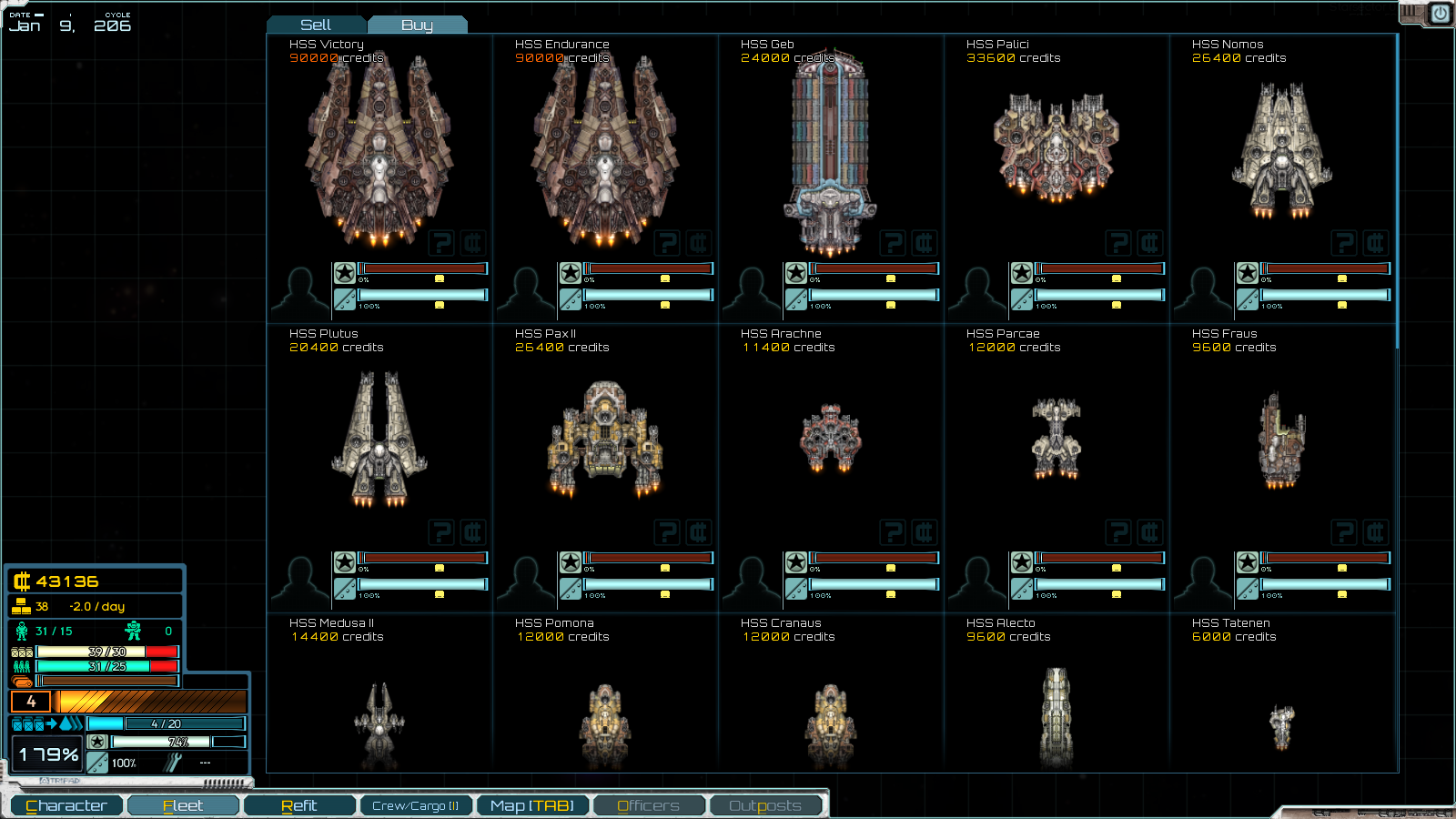
- At one point you said you wanted to see how the Pay What You Want model evolves before making any decision about Starsector moving that way. Have you seen anything to change your mind either way? Will we see it in any bundles, if only to get exposure?
Maybe eventually, well after the game is finished, and it's at the tail end of its sales. I think selling in a bundle "for exposure" is a bit like selling at a loss but trying to make up for it in volume. Clearly, there's no "loss" here, but you're still cannibalizing future sales if you do it early. Just the other day, I read an article about how a big portion of bundle customers are actually Steam key resellers - that's awful! Some bundles are taking steps to combat this, which is great, but this has already been going on for years, and I can't help but wonder how much damage was done to developers.
- Do you enjoy the freedom of working on a no-deadline development schedule, or do you have an internal deadline with milestones for it that you may be facing yourself against?
I think reality is somewhere between those two extremes. I enjoy the freedom to do things "right", but there's still a lot of (self-imposed) pressure to get things done. I think the main difference is that visible deadlines would cause feature cuts and more bugs; I don't think it would make that much difference in terms of stress.
- Starsector has always had a vibrant, if not that large of a community behind it, creating a lot of mods and working tirelessly over them. How has the community influenced your vision of the game, if at all?
The overall vision? Honestly, I don't think that's changed very much, but then, it's non-specific enough that it didn't need to. The community has influenced a lot as far as the actual nuts and bolts of the game, though - a ton of gameplay improvements and mechanics changes are owed to player feedback and suggestions. As an example: one specific suggestion about improving modability (basically, allowing mods to provide jar files) ended up changing dev process - it made it easy to develop campaign features in the same way mods would go about doing that, too. Needless to say, being used in day-to-day core development improves the modding API tremendously.
- Have you anticipated the community's passion for modding or did it catch you off guard? And speaking of, have you yourself been involved in modding other games?
I was hopeful, but it's safe to say that the amount and quality of modding has exceeded all expectations.
As far as making mods myself, yeah, I've done that in the past. Did a bit of it for Morrowind (just my own personal mod, mostly bug-fixes), and spent some time making wave maps for Warcraft 3. I actually made a map that was very much like DOTA before there was DOTA. It even had the 3 lanes and everything! Well, "made" is too generous a word. It's more like "got sort of working and then didn't go too much further with it". Ah, ideas - generally worthless without good execution and follow-through.
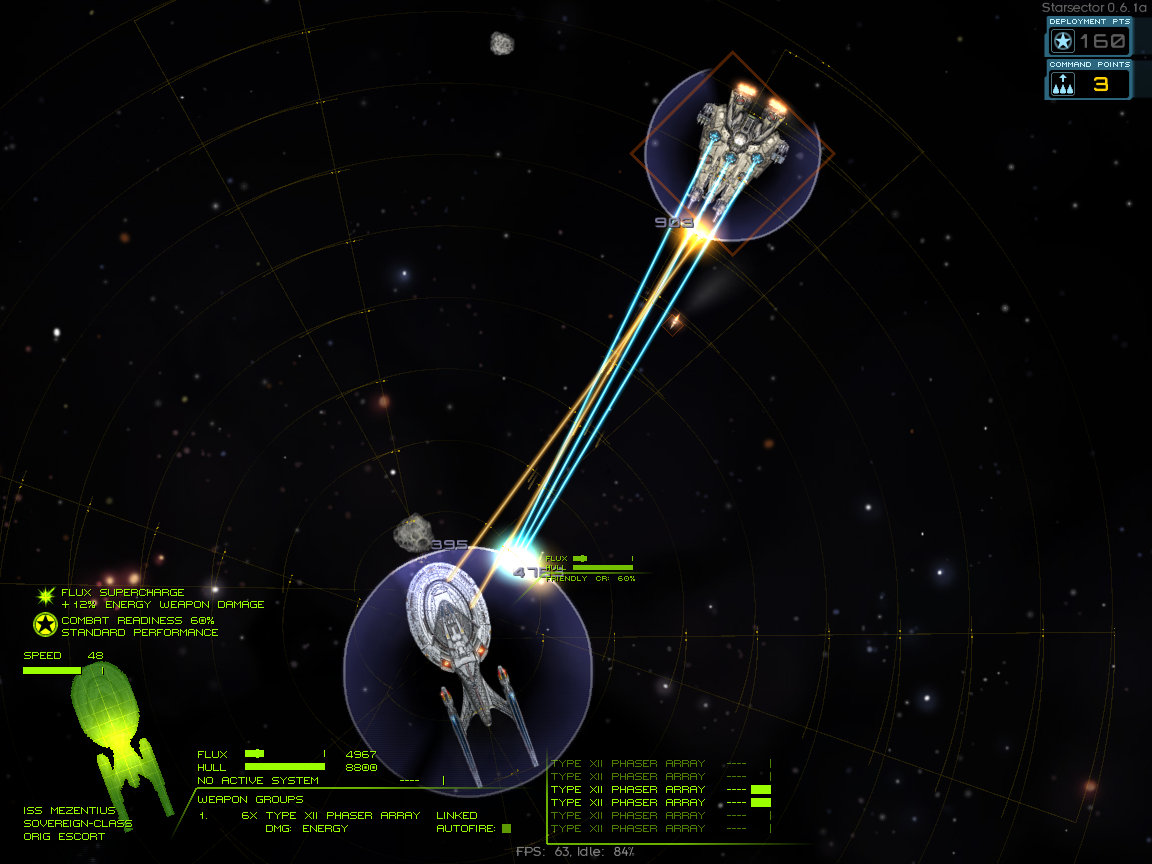
- You've made great strides to show support to modders via documentation, forum help and API integration, did these take time off from other development tasks from the actual game? And do you think it's an investment in the healthy future of your game or something you could have postponed?
It's a tough question. If there was no modding support, then yeah, I suppose some things could have gone faster, though a lot of what makes a game moddable is the kind of design you'd have to do anyway to be able to add content yourself. To me, though, modding is such a core part of what makes a PC game that I never considered not supporting it. Happily, I think it also is a great investment in the future of the game, and it certainly helps keep things going between releases.
It'd be hard to just tack on later, too; you really need to plan for it from the start. For example, early on I didn't have the overall modding framework worked out, and was feeling my way around for the best way to structure it. As a result, some of the combat-related modding can get pretty awkward (combat being the first part that was developed). On the other hand, working on the campaign now, with the modding structure firmly in place, actually makes it easier to add campaign features, and the extra effort to make many things moddable is close to zero.
- Do you feel mods have begun to 'overlap' or 'take the lead' in regards to your vision of the game? Have you considered or are intending to either integrate mods or recruit new team members from the community in the development of the game?
The way I see it, mods have more freedom than the core game. Vanilla has to be Responsible, while mods have the freedom to do things just because they're fun and so push the envelope. Whatever the biggest ship in the core game is, there's going to be a mod with a bigger ship, you know? Not to imply in any way that this is bad, I think this ability to experiment is one of the things that makes mods great.
As far as integrating mods into the core game, that's really problematic. To start with, that seems like a legal and ethical minefield. It's also a logistical minefield; integrating a mod into the game would kill the mod as a standalone entity, as well as tie its release schedule to that of the game. Frankly, it doesn't sound like the sort of thing I'd want to do if I was a modder. There are also risks with bringing new people on board, as I touched on earlier. Finally, as high as the quality of some of the mods is, it's still a different creative vision. I don't think trying to lump different things together to make them fit is going to result in something that's overall better.
- Do you think, if you have had the funding but not the extensive feedback of the active community each patch, that the game would look different today?
For one, there'd be a lot more bugs! As I mentioned earlier, feedback from the community is responsible for a slew of improvements, so yeah, the game would be quite different, though it's hard to say exactly what it'd look like. Probably "similar, but lower quality".
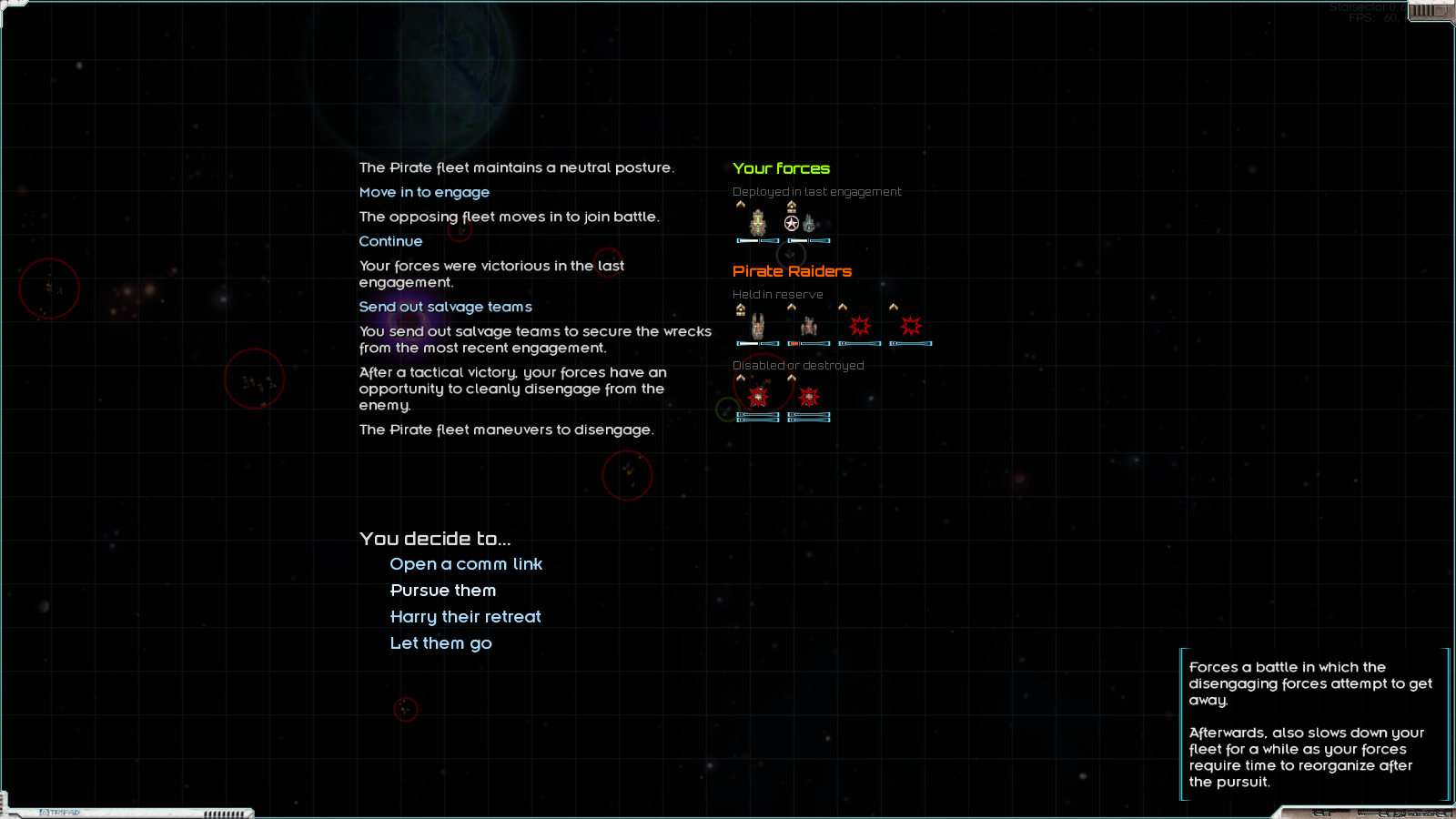
- Starsector always managed to keep a sense of a completely playable game every patch/update but how do you feel about some of the payed-in Early Access games that present themselves as merely buggy prototypes or proof of concepts lacking substance and content?
Buying an Early Access game is always a risk. You don't know what the end result is going to be like, and you don't even know that it's going to get finished. I think as long as the player is aware of that when they make the decision to support a game, then that's fine, regardless of the quality of the available release. It definitely takes a lot of effort to try and make each release play well on its own, so I could easily see someone wanting to take a different route and release largely-untested alpha builds. From that perspective, these releases would be just a small along-the-way bonus to early supporters, rather than the reason someone would support the game in the first place, if that makes sense.
Now, that does make it a larger risk for the player, which is part of the reason I try to make individual releases stand on their own. I'd like people to feel like they've gotten their money's worth along the way, with the *finished game* being a bonus at the end. I don't want to be in the position of constantly trying to sell a promise. It also doesn't hurt that a release being playable means people will play it, which in turn means bug reports and meaningful feedback.
Ultimately, I think it comes down to managing expectations and talking to the community. A buggy/insubstantial alpha release could mean there's not much behind the project, or it could just mean that the effort is being directed elsewhere, and it just didn't show in that release.
- Starsector has been oddly quiet on various medias, will there be a large marketing push at one point when you're confident with the status of the game?
Yeah, absolutely. I keep thinking about it, but it's always "just one more release worth of features" away. Part of it is the typical developer-feeling-game-isn't-ready-when-it-probably-is, part is the disparity between what I ultimately want the game to be, and where it is right now. We'll see. Almost certainly by beta.
It did get a good amount of coverage a while ago, I think it dropped off because a lot of places already covered it, and it might not make much sense to cover it again until it gets out of alpha at the very least.
- If you could pick one thing in your four-year development of Starsector to change or warn yourself about, what would it be?
Game development is a game of many hats, so to speak. One of the hats is UI design. (Did I mention that I love the word "hat"? Any sentence can be made funny by the inclusion of a hat.) So, right, UI design, also known as "not anything I've had any formal training for whatsoever". At the beginning, I've had the approach that, for whatever set of game mechanics, you could design a UI that would work well, and so the tasks of "game mechanics design" and "UI design" were separate in my mind. Ah, to be so naive; anyone with UI experience is probably laughing right now. Realizing that the two are inextricably linked, and that the UI is in an important sense the actual game were both hard-won bits of experience.
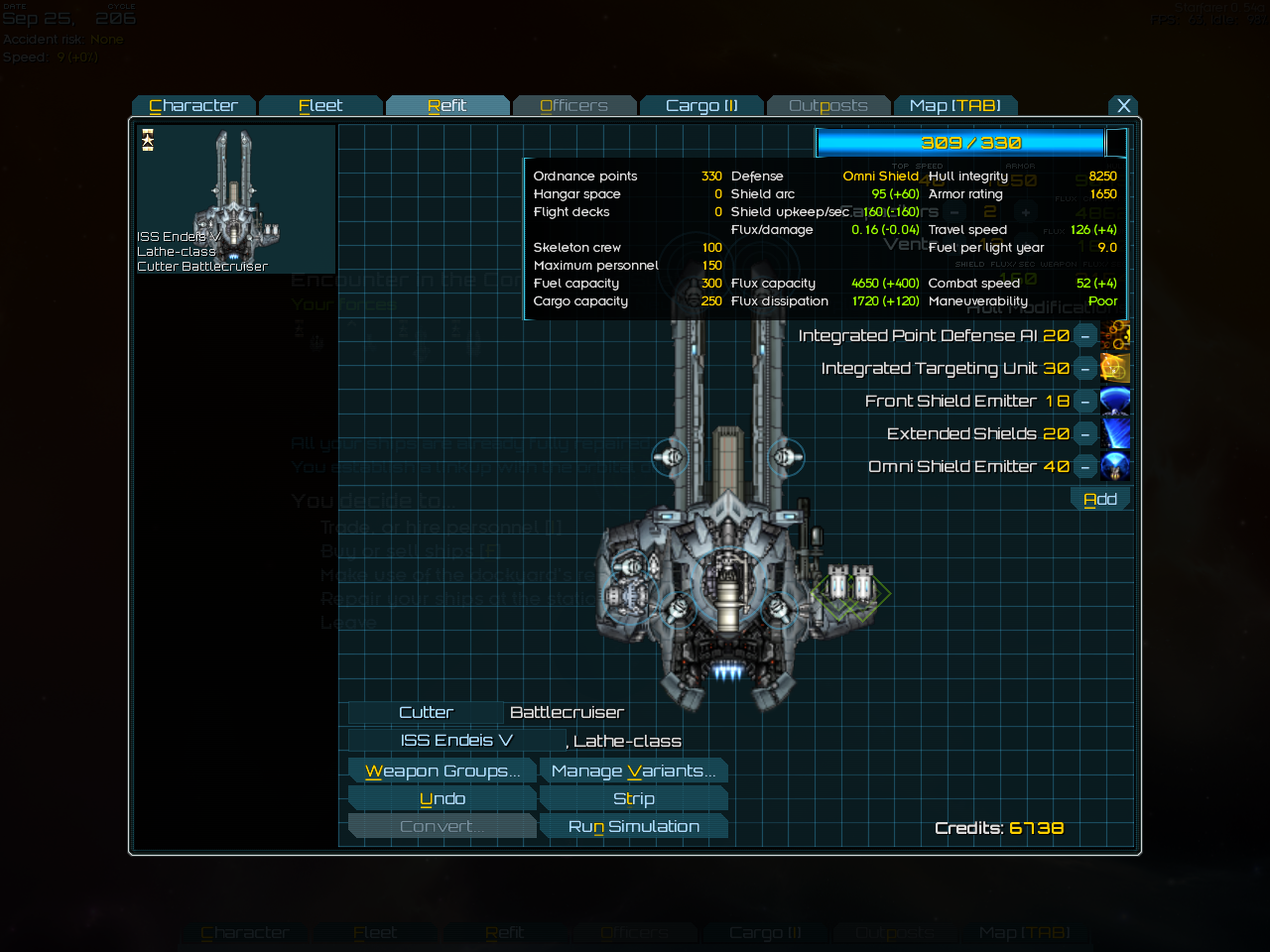
- Past Starsector, do you want to continue to develop games for a living in the long term? Would you consider developing your company further or could you find yourself working at a large gaming studio?
I'd love to continue to develop games for a living! This is actually my metric for the success of Starsector: if it makes enough to allow me to continue in game development, it's a success.
I don't see myself working at a large studio, though. Lack of creative control, constant crunch, poor pay compared to other programming jobs. I don't understand the appeal. Is working on some part of a game engine inherently more exciting than working on some Java backend? What makes game development amazing and wonderful is creating something. If you're shut away from that, though...
- Do you know/follow Dwarf Fortress? And if you do, would you be able to work two years on a single massive update without releasing anything in between?
I'm a huge fan of DF! Haven't played it in a while, though, it started to get a little too detailed for me right around the inclusion of hospitals. It's incredible, though. I think it's the only game that has managed to deliver on the potential of computer gaming - that feeling that you can do anything and everything, and there's a real world in there.
As for a 2-year release cycle, I don't think I could afford to do that. Their business model is different, so if it works for them, then why not? I don't think using DF as a representative example of game development works, it's just too unique.
- In closing, do you have anything you'd like to say? People to shout-out, suggestions to give, funny cat GIFs to share?
Thank you to everyone that's preordered to support Starsector's development! I couldn't be doing this without your support, and I'm very grateful (and also a little blown away, when I have time to stop and really think about it).
- Thank you Alex for your time!
For anyone that wants to check out Starsector you can find it at www.fractalsoftworks.com availible for Windows, Linux or Mac at the low-low price of 10$ (VAT notwithstanding for EU territories). Trailer below for those interested.
~ Cosmo
Reposted from http://tay.kotaku.com/starsector-a-story-of-indie-development-done-right-i-1607174579
Read more about:
BlogsYou May Also Like